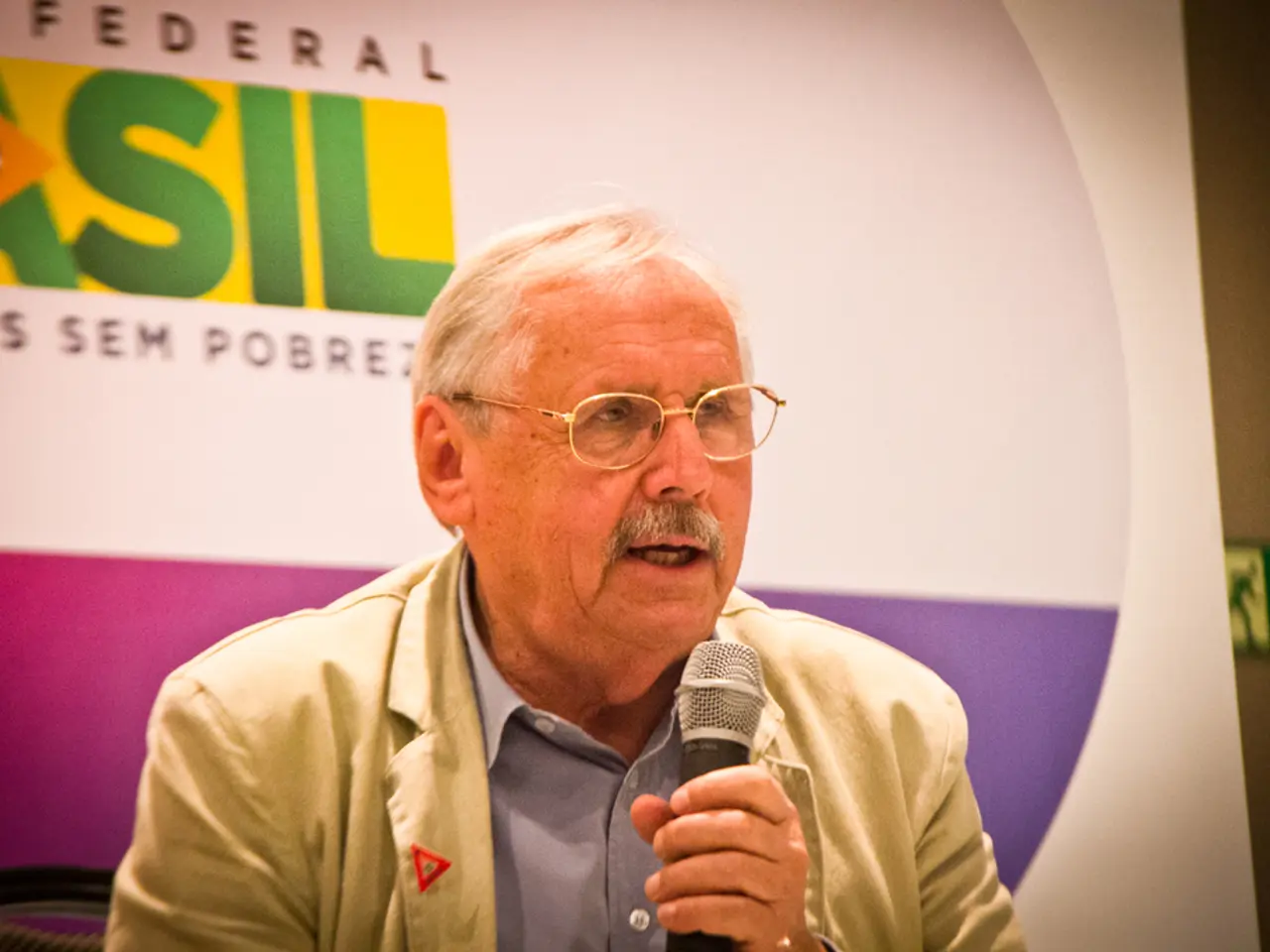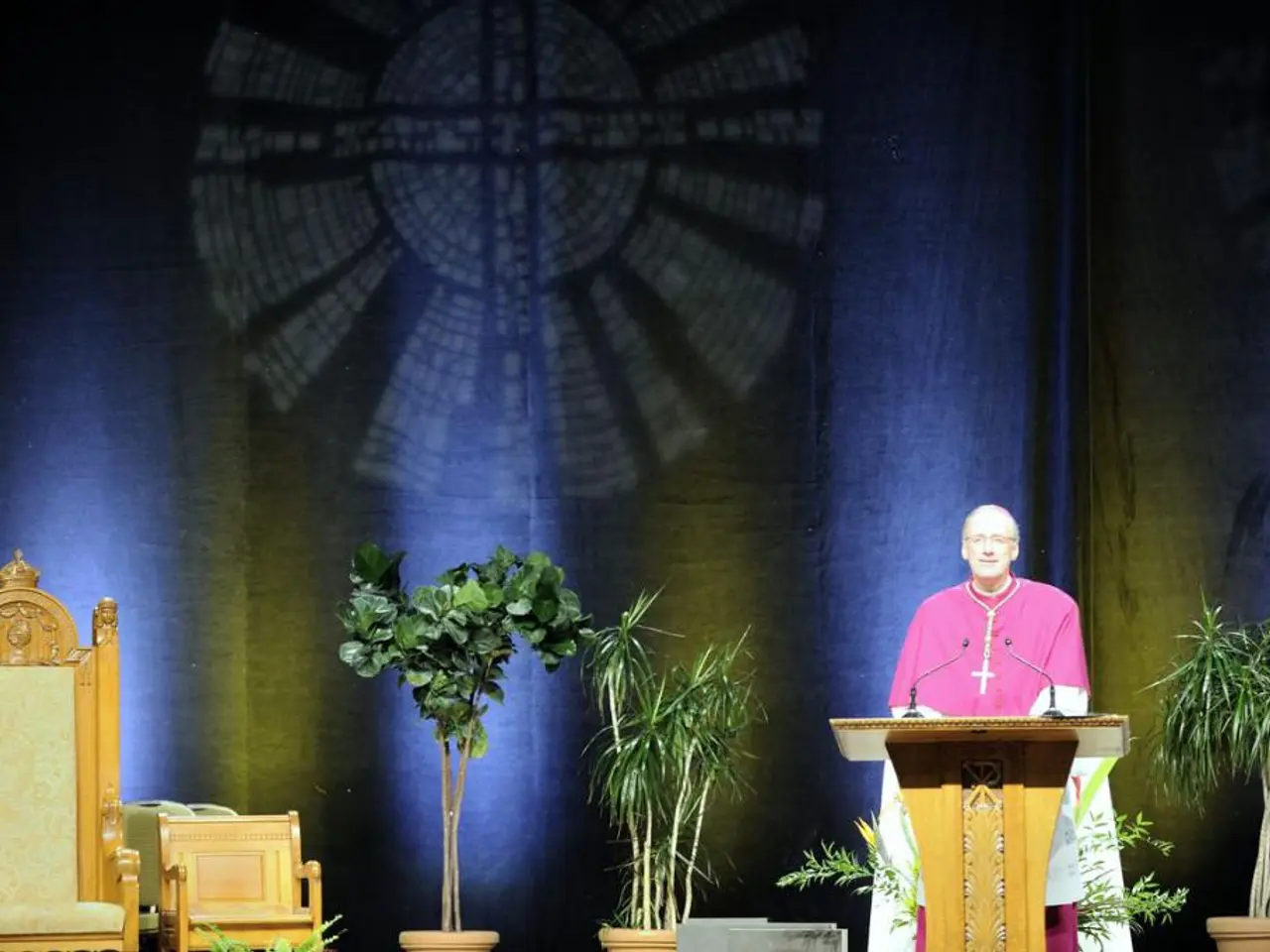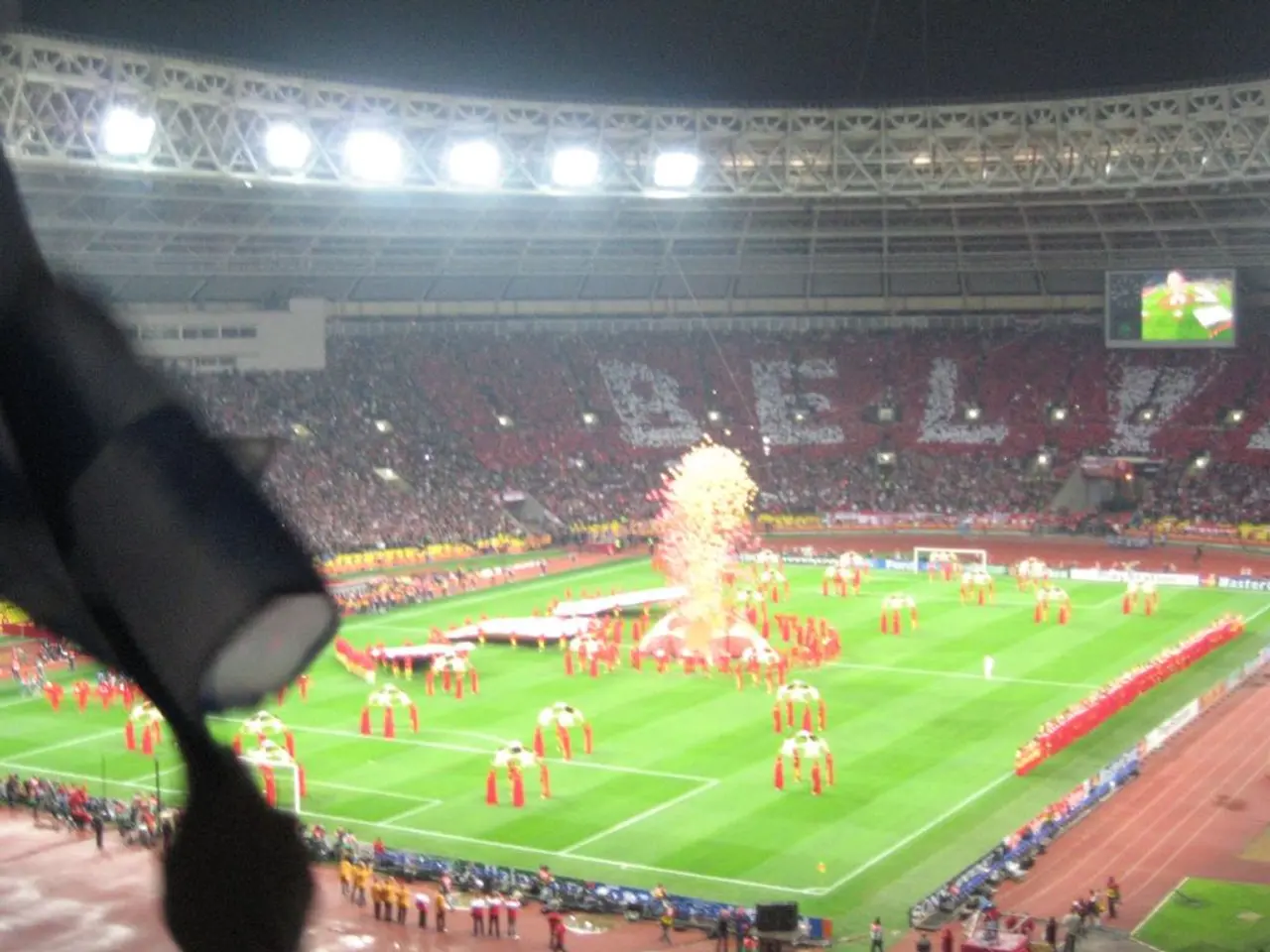Federal authorities have established an air link to Gaza - U.S. authorities initiate air transportation to Gaza strip
The ongoing crisis in Gaza has prompted a series of responses from the European Union (EU), with a focus on humanitarian relief and political solutions.
Last week, France announced the recognition of Palestine as a state, joining the international community in supporting a two-state solution. However, the EU Secretary-General António Guterres has expressed concern that this solution is further away than ever.
Israeli Prime Minister Benjamin Netanyahu has stated that his country's tasks are the destruction of the Palestinian organization and the rescue of all hostages still remaining in Gaza. This stance, despite growing calls for an end to the conflict, has led to international condemnation and pressure.
The EU has strongly condemned Israel's blockade on Gaza and called for its full lifting to allow immediate and sustained humanitarian aid access throughout the region. The EU supports an immediate ceasefire and the unconditional release of all hostages, advocating a permanent end to hostilities.
One of the EU's most significant actions has been the proposal to suspend Israel from parts of the Horizon Europe research fund. This suspension, if approved, would specifically block grants targeting Israeli start-ups, as a targeted and reversible action linked to Israel’s alleged breaches of human rights under their association agreement with the EU. However, this suspension has not yet been agreed upon by all EU member states, with countries like Germany, Hungary, and Austria cautious or opposing it.
Germany, France, and the UK have announced humanitarian aid airdrops to Gaza, with Germany recently announcing a significant airdrop. Diplomatic dialogues between the EU and Israel over the humanitarian crisis have resulted in some limited steps being agreed upon.
At the political level, EU foreign ministers have considered a broad range of options, including full suspension of the EU-Israel Association Agreement, arms embargoes, sanctions on Israeli officials, halting visa-free travel, and banning trade with Israeli settlements. However, none of these options have gained enough support in the Council to be implemented. Cross-party groups of MEPs continue to press for suspensions of trade deals and sanctions on Israel over Gaza atrocities.
Human rights organizations criticize the EU for failing to act decisively, calling on member states to unilaterally suspend cooperation and impose comprehensive embargoes on arms and technology transfers, and to ban trade with illegal settlements in the Occupied Palestinian Territories (OPT).
In response to the EU's actions, Israel has stated that it will endeavour to ensure that the recommendation is not accepted by the EU Council of Ministers. Israel also blames UN organizations and the Hamas for problems with the distribution of aid goods in Gaza.
As the crisis continues, Germany, along with Jordan, is launching an air bridge to supply aid goods to the people in Gaza. US President Donald Trump has urged Israel to supply the population in Gaza with food. A two-day conference co-hosted by France and Saudi Arabia has taken place, but no progress is expected. Representatives of Israel and the USA are absent from a current UN conference in New York on the realization of a two-state solution.
In summary, the EU has condemned Israel's blockade and conduct in Gaza and pushed for humanitarian relief and political solution, while exploring targeted punitive measures. However, political divisions within the EU have so far prevented the adoption of comprehensive sanctions or suspension of broader agreements with Israel.
| Measure | Status / Details | |-----------------------------------------------|----------------------------------------------------------------| | Suspension of Israel from parts of Horizon Europe research fund | Proposed by Commission, not yet agreed by all member states[1][5] | | Calls for full lifting of Gaza blockade | Official EU position, ongoing diplomatic pressure[2] | | Humanitarian aid (e.g., German airdrops) | Announced and being implemented[1] | | Immediate ceasefire and hostage release calls | EU official stance at UN Security Council and diplomatic forums[2] | | Consideration of sanctions, trade suspensions | Discussed by foreign ministers but no consensus; active MEP calls ongoing[3][4] | | Arms embargo, sanctions on officials, visa bans | Proposed options, no current implementation[3] | | Calls by NGOs for unilateral embargoes and cooperation suspensions | Strong criticism of EU inaction; urging immediate unilateral steps[3] |
- The European Union (EU) has expressed concern that the two-state solution for the ongoing crisis in Gaza, which has the support of France and the international community, may be further away than ever.
- In response to the crisis, the European Union (EU) has proposed to suspend Israel from parts of the Horizon Europe research fund, a targeted and reversible action linked to Israel’s alleged breaches of human rights under their association agreement with the EU, in order to exert pressure for humanitarian relief and political solutions.








